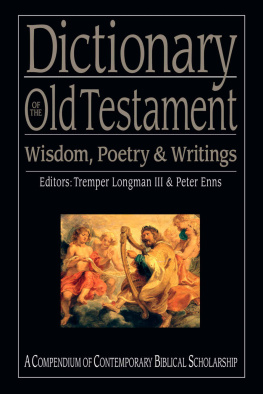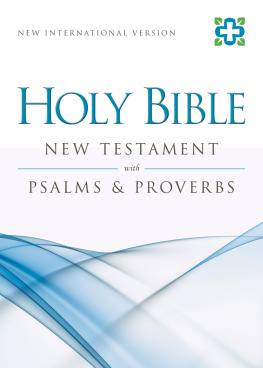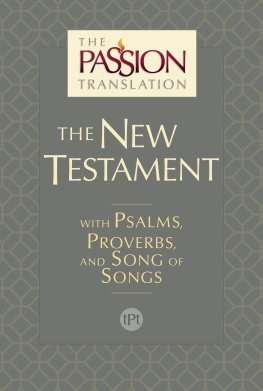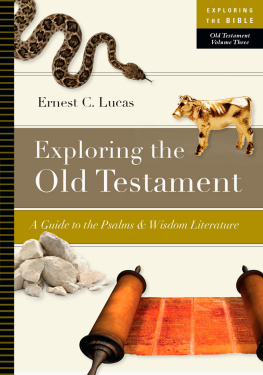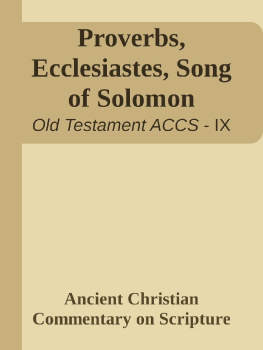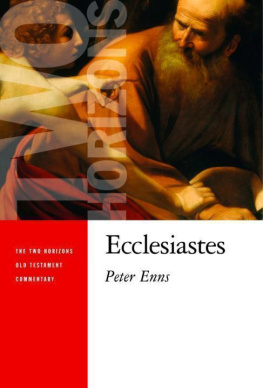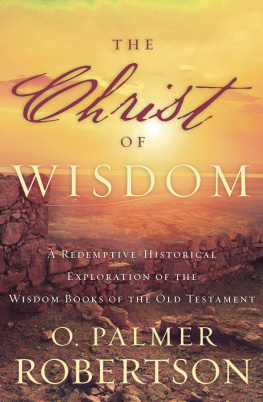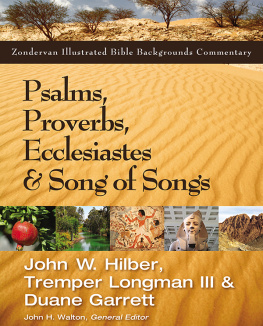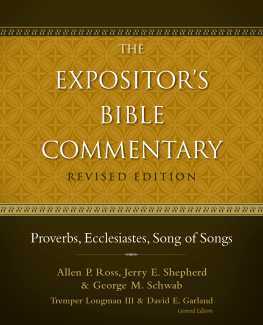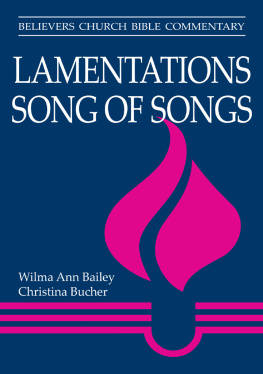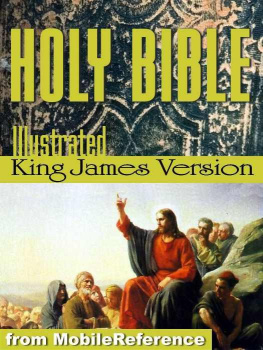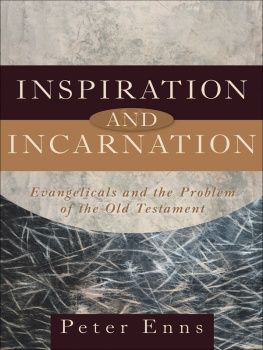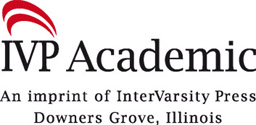Daniel G. Reid
Robert G. Maccini
Robert A. Fryling
Andrew T. Le Peau
Preface
The editors are honored to present the seventh in a series of critically acclaimed IVP Academic dictionaries on the various parts of the biblical canon. By the time we began our work some years ago, we had already benefited personally from the dictionaries that had seen publication. These dictionaries were helpful to our research because they provided a ready summary of the best thinking on the most important subjects in the areas of their coverage, and they advanced the discussion with fresh insights and ideas. We were excited at the prospect of helping to produce the same quality research tool as our predecessors on a part of the canon that has received spotty attentionthe Psalms, Wisdom and Writings.
The delineation of this corpus of biblical books is difficult. The first volume in the Old Testament series presents no problem in this regard, the Pentateuch being a clearly defined unit, the Torah of the Hebrew Bible. The Historical Books are a bit more problematic to define since not all the historical books fall into a particular part of the Hebrew or Greek canon. The Former Prophets of the Hebrew canon (Joshua, Judges, Samuel, Kings) are all included, but so are Chronicles and Ezra-Nehemiah, which are found in the Writings (Ktbm) of the Hebrew canon. One could mount an argument for the inclusion of Ruth and Esther in the Historical Books volume. Nonetheless, they instead are included in our volume in order to treat all the Megillot (or Festal Scrolls: Ruth, Song of Songs, Ecclesiastes, Lamentations and Esther) together. The Megillot and all the other books covered in this volume are from the Writings, though not all the Writings are found here. We have already commented that Chronicles and Ezra-Nehemiah are in the Historical Books volume, and Daniel will be treated in the forth-coming volume on the Prophets.
After determining which books would be included in this volume, it was necessary to choose what topics would be given article-length treatment. As with previous volumes, each biblical book gets a long article. But a new feature of this volume is that for each book there is also an article focused on its ancient Near Eastern background and on its history of interpretation. Major characters are also the subject of longer treatment as well as the most significant theological themes. Different methods of study are described and then applied to the text. While this list does not capture all the different types of articles in this dictionary, special mention should be made of those articles that cover the literary qualities of the Psalms, Wisdom and Writings. All told, the topics were chosen to give full coverage to the important tools, concepts and content needed for the study and interpretation of these books.
The success of such a project depends mainly on the quality of the contributors, and the editors were extremely fortunate to have had the participation of the leading experts on this corpus of biblical writings. We want to thank the contributors for their hard work, careful research and stimulating writing. One of the advantages of editing a dictionary like this one is that we learned and deepened our own knowledge in the process. We trust that our readers will have the same experience.
Besides the contributors, we want to thank InterVarsity Press and especially Dan Reid, our fellow editor, for his vision for this series and his huge imprint on the final form of this particular book. Further, we thank Robert Maccini, Jeff Reimer, Taryn Bullis and the others who have attended to the production of the book.
Tremper Longman III
Peter Enns

